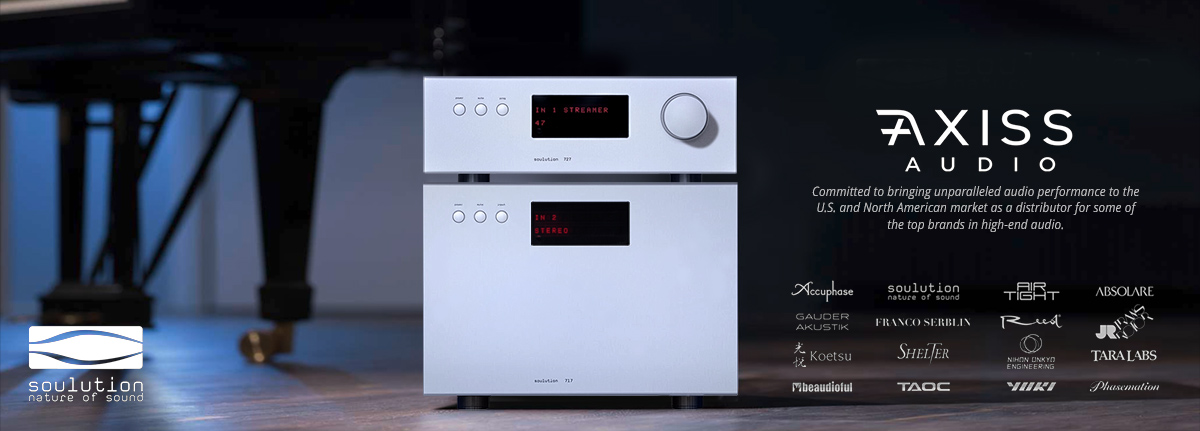I can't ever recall hearing anyone talk about a noise inherent in, or deliberately added to analog components to increase their fidelity.
Can noise affect stereo seperation?
I can't ever recall hearing anyone talk about a noise inherent in, or deliberately added to analog components to increase their fidelity.
Can noise affect stereo seperation?
These?
Let's skip the fact that these don't relate to preamps for a moment. We know that the change in groove elasticity/tape hiss adds a noise akin to digital noise shaping, or we know it works like digital noise shaping to reduce distortion? They're two very different things.
And the answer is no, but I've seen no evidence of good analog noise other than the aforementioned thermionic noise in tubes. Analog audio has been around for many decades. Surely someone can point to/name/measure this "analog dither" if it exists. If it has the affect of increasing fidelity and it hasn't been codified and controlled by now, shame on the industry.
That question has been answered for decades, and the answer has been a founding audio design principle for as many decades -- one component presents more information than the next because it has lower noise, lower distortion. Because it obscures less information. This has been the goal of quality audio, and its founding premise for many, many years. The ideal? "A wire with gain." I've read a hundred variations on that concept repeated in studies, reviews, product literature, over and over again. I can't ever recall hearing anyone talk about a noise inherent in, or deliberately added to analog components to increase their fidelity.
Is this just a personal theory?
Tim
Of course noise can affect separation. You know of a case of analog noise being used to improve separation?
Tim
Audioexplorations, ask yourself about how much you trust your auditory memory the next time you answer your phone and instantly recognize the voice of the caller.
Can't believe I took the f-in time to share my experiences if all you wanted was apparently a chance to promote an agenda. Geez.
You seem to actually believe "straight wire with gain" has been accomplished.
Yeah? What makes it so different from remembering the formant structure of a person's voice?
Well one can talk about it for ages i guess , as goes with many things the proof of the pudding is in the eating
Sure .
You might like it maybe not
Yeah, we will need to do a blind taste test to make sure there wasn't some expectation bias that the pudding might actually be good.
The differences are much less pronounced, more easily forgotten, and difficult to compare. With instant switching you could flip back and forth as many times as you need to to focus and compare a specific aspect. This is the level of detail that would be needed in a preamp/no preamp comparison.
Not sure what you mean with this.Are you trying to rally support?
Sorry, completely missed that. Why were you so interested in debating auditory memory then?If you actually read my post on how I compared, you'd see that I did use fast switching and how.
I never said anything about how I did the comparison. What I did was position my amp, source, and preamp on the coffee table infront of the listening position with the back panels facing and only a few feet away, and manually replug everything, which meant around a 5 second gap in the music. A switch is obviously a better way to do it.Please direct me to your post which does the same.
@Tim...........I think what a lot of people are hearing, if operation without a pre-amp is technically sufficient (low impedance source with power to drive high impedance load), when they add a pre amp, is easy to understand when you look at those twin tone IMD tests (19 + 20 KHZ or whatever) in Stereophile, and golly gee, look at all those new signals popping up all over the place...thats just two tones, now add several dozen or more together......yes, distortion, BUT, depending on the flavor of those distortions you can hear "more" or less "detail".
(...) The answer, it seems, is "Yes. If you hear one." Unless you have the money to buy a roomful of quality pres to switch in and out of a system until you're satisfied that you've answered that question and sold off all, or all but one, or unless you're willing to displace at least a part of your love of music with a passion for years and thousands of dollars in the pursuit of system synergy, it's not an answer. It's another whole series of questions. I guess I was really looking for "your output x needs to be between A and B if your amplifier z is between C and D." Can it be that simple? Perhaps not, but I think it's a lot closer to that simple than it is to this complicated. YMMV.
When I got subjective evaluations of emotional experiences instead of my answer, I pushed for data. That got interpreted as me not excepting people's experiences. The truth is I probably asked the wrong question in the first place. Sorry.
Tim
PS: Looking back through, I see that my question was answered, pretty definitively, by page 5. Had I bowed out at that point instead of challenging people to provide some substantive explanations for subjective experiences, this whole thing would probably have ended better. My apologies.
| Steve Williams Site Founder | Site Owner | Administrator | Ron Resnick Site Owner | Administrator | Julian (The Fixer) Website Build | Marketing Managersing |
















